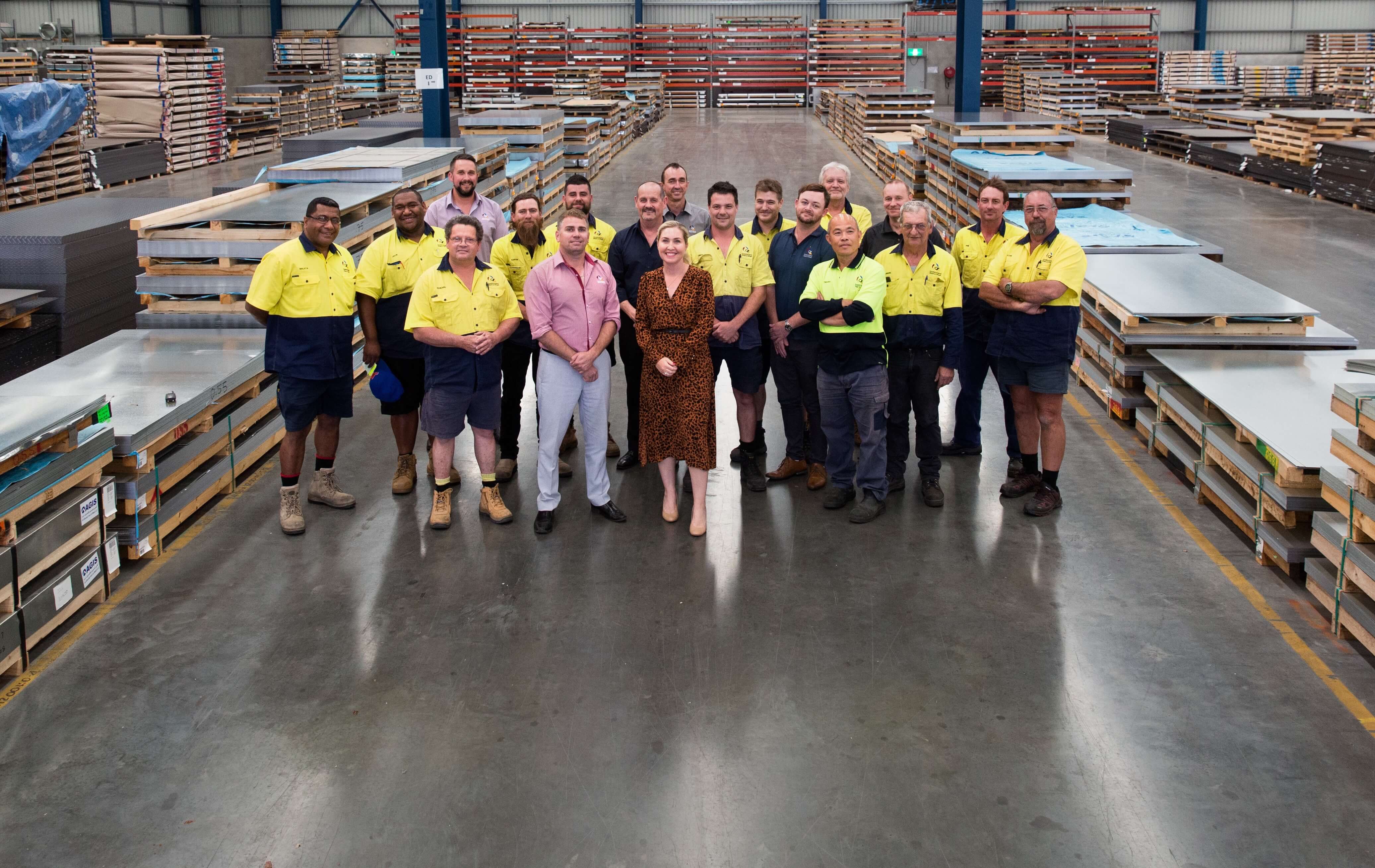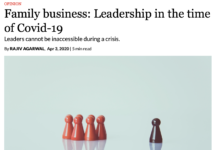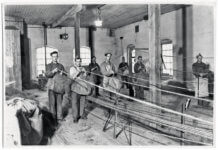Cecily McGuckin was no stranger to the family business, Queensland Steel and Sheet (QSS), when she joined. As such, she was well aware that the task ahead of her would be arduous.
After her father Barry Hunt formed the business on a handshake deal with partner Ken Thompson in 1985, Cecily found herself spending school holidays helping in the warehouse. Despite her presence, however, QSS’s “boys-only” culture was representative of the broader sector; women did not seek opportunities in the steel industry, nor were they really welcome. Cecily turned down her father’s first offer to join QSS more than 20 years ago to pursue a career outside of the family business, which did not resonate with her at the time.
When he made a second offer a decade later, Cecily could not resist the pull of the family business. However, she also knew that she had to impart her own brand of leadership – one that would radically transform QSS’s culture, which was, at best, behind the times.
Gender inequality, however, was not the only aspect of culture Cecily addressed – even though she is still the only female CEO to lead a steel company across Australia. Over her tenure, she has worked tirelessly to get to know her employees and find out about their lives, which has allowed a special cohesive work dynamic to develop.
Cecily asserts that the defining feature of successful businesses is their culture, and her family business is proof of that assertion. Since Cecily joined, QSS has thrived. Currently, it is one of the country’s longest-serving family-owned steel companies and a major player in Queensland in terms of sheet metal.
Tharawat sat down with Cecily McGuckin to discuss Queensland Steel and Sheet’s rise to prominence and what it takes to transform a company’s culture.

What was it like to join your father in business?
It was a difficult transition for both of us. It wasn’t easy for my father to let go, and I found his belief that women could not work at QSS, and never would, hard to accept – never mind confusing. The culture presented an immense challenge. Plus, it was a risk for both of us. Despite his boys’ club mentality, he was bringing a woman – his daughter, no less – into the business, and I was moving out of my professional comfort zone.
When I was younger, I would never have imagined myself working in the steel industry, but the family business was in my blood, and I couldn’t resist joining QSS. I quickly saw the areas that needed improvement but spent a lot of time butting heads with my father because there was no structure in the business.
He had led for so long and, because it was successful, he didn’t see the need for change. However, as a newcomer, running an operation with no contracts and no official written procedures was infeasible; something had to change.
It was extraordinarily difficult, but looking back now, I can see that my father and I have come a long way in ten years. Our relationship is completely different than it was before I joined QSS. We’ve grown from the experience.
“If a worker feels unsupported in their job, there’s a problem at the leadership level.”
What’s the most significant difference between your leadership and your father’s?
We were born in different eras. When my father ran the business, it was patriarchal – everything was top-down, with almost no consultation.
I collaborate with employees and include them in decisions. They feel like they are an integral part of QSS. You must understand people on a personal level to know how to deal with them as an individual in a business.
When my father was leading QSS, he struggled with this idea of company culture and soft skills. It’s probably the biggest differentiator between our leadership styles.

What have you done to create a safe space for employees to voice their opinions?
I allow myself to be vulnerable in front of my employees. If they’re talking to me about something important, I often tell them a story about something similar that I’ve gone through – how I dealt with it. This way, they get to know me as much as I get to know them, which strengthens the relationship and builds trust.
I also make a point of asking employees about their families and home lives, which means I know the names of their partners and children, as well as their hobbies and interests. I tell them that, although work is important, family comes first. After all, the primary purpose of going to work every day is to support your family.
How do you ensure that this level of involvement doesn’t become too demanding?
Ideally, it’s a two-way street: although you take on people’s problems, you also get the benefit of having them to talk to if necessary.
I understand that this level of personal involvement is time-consuming. Still, I don’t see how any manager can be successful if they’re completely unaware of what’s going on in their employees’ lives. How can you possibly manage them if you don’t understand them?
That’s why I’ve never seen it as a burden. For me, culture defines success in business. If a worker feels unsupported in their job, there’s a problem at the leadership level.
How important is it to find the right people to work within that company culture?
Sourcing the right talent is extremely important. You need to make sure that you’re employing the type of people you want in your company – those who fit with the personalities you already have. If during an interview I get the impression that a potential employee has a big ego or negative attitude, they won’t progress any further. I do not want that type of person working for QSS.

Is it important for you that QSS remains a family business?
Absolutely – I would be overjoyed if QSS stayed in the family. I have three sons, and if they want to join in the future, I’d love it. There’s a catch, however: I want the right people in the right roles, so if my boys are not the right fit, then it won’t work.
Additionally, I don’t want them to join straight out of school. They need to gain experience working in completely different industries and environments first. Then, they can bring those skills to QSS.
If, on the other hand, they do not want to be involved in the business at all, that’s completely fine too.
About 18 months ago, we began formalising family councils, advisory boards and a transition plan for the next generation. Difficult subjects that needed to be discussed, including estate planning, were addressed so that they do not become issues in the future.
It was a struggle, and in hindsight, it might have been easier had we employed professional help earlier. That said, the process was rewarding; we learned so much about ourselves and each other along the way. Now we can rest easy knowing that the next generation has a solid family governance structure in place.














